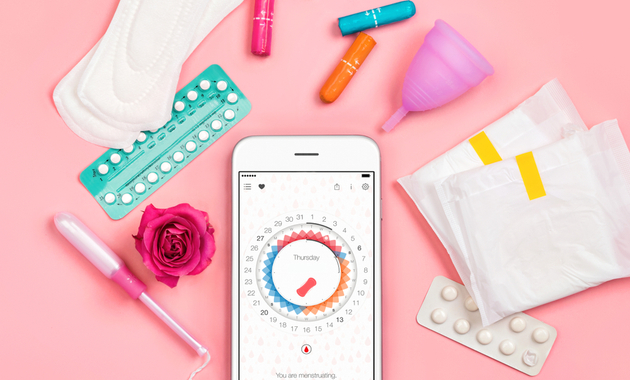
Periods or menstruation is a natural and healthy part of life for most women. Yet, it is a taboo topic and hence, awareness about menstrual hygiene is very limited in most parts of the world. According to statistics, at least 500 million women and girls lack access to proper menstrual hygiene facilities worldwide. Poor menstrual hygiene not only increases the risk of urinary tract infections but also amp up chances of other health concerns including reproductive problems.
The Healthy Cycle
A woman’s body goes through a monthly hormonal cycle, called the menstrual cycle. It is counted from the first day of the periods up to the first day of the next period. The average length of a healthy menstrual cycle is 28 days, but it can range from 22 days to 35 days.
Periods: The Normalcy
It’s difficult to define exactly what a normal period is because it varies greatly among women. Most women may experience variation in:
- Time interval between periods
- Amount of blood lost
- Duration of bleeding
For most women, the periods last about 3-7 days and average loss of blood being around 6 to 8 teaspoons. Your periods can reveal a lot about your health. Facing irregular periods or other menstrual problems? Get expert advice in no time. Consult NOW!
What Heavy Periods Mean?
Excessive or prolonged periods can lead to anemia and increase the risk of iron deficiency. A good indication that your periods are heavy is if you:
-Have to change your sanitary products every hour or 2
-Need to use 2 types of sanitary products together (for example, tampons and pads)
-Bleed very often through your clothes or bedding
Stay ahead of your health game with our exclusive women care range.
Tips To Follow For Intimate Hygiene
A woman menstruates for about 7 years during their lifetime on average[]. And it is extremely important to take care of intimate hygiene during periods to keep infections at bay. Here are some quick tips:
Keep it dry and clean: Gently washing with a mild unperfumed soap or feminine wash is pH-balanced is advised. Avoid perfumed soaps, gels and antiseptics as these can affect the healthy balance of bacteria and pH levels and cause irritation. Choose From Our Range Of Feminine Hygiene And Care Products. Click Now!
Choose right: Choose wisely from sanitary pads, tampons, cloth pads and menstrual cups based on your comfort and ease-of-use. Here is a detailed guide on how to pick menstrual hygiene products. Click to know more.
Change often: Change sanitary pads every 3 to 4 hours and menstrual cups around 6-12 hours. Change tampons every 5-6 hours. If using menstrual cups, empty the contents, wash it with soap and hot water and insert it again.
Wash those hands: Wash your hands with soap and water after using the washroom during periods. Follow the same habit after discarding used sanitary pads or washing menstrual cups.
Never flush sanitary pads or cloth pads down the drain but wrap the used pad in a paper and dispose of it in a dustbin. Want to know more about sanitary pads and how to use it? Click here!
Should head wash be avoided during periods? Don’t let myths and misconceptions hold you back. We have got 7 most common periods myths debunked here. It’s time to shed inhibitions and follow proper intimate hygiene, especially during menstruation, to stay healthy.
(The article is reviewed by Dr. Swati Mishra, Medical Editor)
Recommended Reads:
7 FAQs On Periods/Menstruation Answered
Reference:
1. Menstrual Hygiene Management Enables Women and Girls to Reach Their Full Potential. The World Bank. https://www.worldbank.org/en/news/feature/2018/05/25/menstrual-hygiene-management
2. FAST FACTS: Nine things you didn’t know about menstruation. UNICEF. https://www.unicef.org/press-releases/fast-facts-nine-things-you-didnt-know-about-menstruation